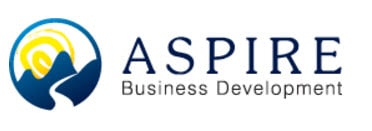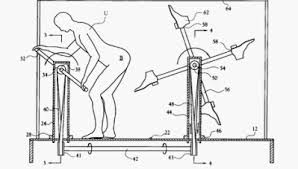6 Critical Factors That Make Businesses More (or Less) Attractive To Buyers
 Post by Valerie L. Vaughn, Certified M&A Professional (CM&AP) | Certified Business Intermediary (CBI) | Business Broker
Post by Valerie L. Vaughn, Certified M&A Professional (CM&AP) | Certified Business Intermediary (CBI) | Business Broker
Six factors can make the difference between selling at a premium—or a discount.
If you’ve decided to sell your business now or in the next few years, you might stop and ask yourself if anyone will want to buy your business. Seriously.
Is your business going to be attractive to buyers? Will they value it as highly as you do? Is your baby ugly to everyone but you, or could it win a Beautiful Baby contest?
Business owners are frequently unaware of what buyers value and are surprised when they go to sell and learn that their business isn’t ready or won’t bring the price they want. If you want to maximize value, then plan to sell. Few businesses are ready without preparation.
Here’s a checklist of six key value drivers that make businesses more or less attractive to buyers. They make the difference between selling at a premium or a discount. How does your business measure up?
Management and key people. Owner-centric businesses are more difficult to sell. Buyers prefer strong management teams or the next level of key employees to already be in place. Can you leave the business for extended periods of time without worrying that it will go off track? If your answer is anything but “yes,” it’s time for a change. Your employees can add value to your business. Are you treating them well and developing them appropriately?
Customer concentration. Most buyers want to see a diverse customer base rather than a concentration of revenue from one or a handful of customers. What percentage of annual sales is attributable to your largest customer? Your largest five customers? For most industries, no one customer should represent more than 10 percent of revenue.
 There’s still time to register online!
There’s still time to register online!
Systems and procedures. Buyers like to see systems and procedures that make the business easier to manage and transition. This includes manual, automated and information technology-based systems and procedures. Do you have written policies and procedures in place? Are employee roles and responsibilities defined in writing? Is your company’s information technology up to date?
 Sales and marketing. Sales and marketing should be delegated or outsourced and not dependent solely on the owner or founder. If you are still the face of the company and hold most or all of the customer relationships, this is an area that needs some work.
Sales and marketing. Sales and marketing should be delegated or outsourced and not dependent solely on the owner or founder. If you are still the face of the company and hold most or all of the customer relationships, this is an area that needs some work.
Financial record keeping. Clear and accurate financials accurately tied to tax returns add value to a business. No kidding, folks—this one is really key. You can’t tell Uncle Sam that your business isn’t profitable or just barely breaks even and then expect a buyer to trust you that it’s truly very profitable. No earnings, no value.
Revenue and earnings trends. Buyers and banks that finance buyers focus on historical trends over a three- to five-year period; increasing trends are obviously best. If revenue and earnings are in decline, you still might be able to sell the business, but be prepared for a smaller pool of interested buyers. Be able to explain the downward trends, and know that your business will likely sell at a discounted price.
If you haven’t already begun, start to look at your business through the eyes of a prospective buyer. Run a SWOT analysis and work to strengthen your weaknesses and develop barriers to threats. Preserve your strengths and position yourself for opportunity.
With a little forward planning, you can significantly increase the value of your business and the odds of a successful sale. If you aren’t sure how to start, connect to a knowledgeable business intermediary.
Valerie L. Vaughn is a certified business intermediary and a certified mergers and acquisitions professional with Apex Business Advisors. If you or someone you know is interested in buying or selling a business, please call us at 913-383-2671 or contact one of our Apex Business Advisors today!

 Report your revenue and expenses accurately.
Report your revenue and expenses accurately. There are many reasons to use a professional Business Advisor/Broker such as Apex Business Advisors. Here are a few (in no particular order of importance):
There are many reasons to use a professional Business Advisor/Broker such as Apex Business Advisors. Here are a few (in no particular order of importance):

 The last couple of months have been really challenging with getting two kids off to college, selling a house, buying a complete gut job house, planning an Apex sales award vacation for 7 couples, working on my deals, and operating a business with 12 other brokers.
The last couple of months have been really challenging with getting two kids off to college, selling a house, buying a complete gut job house, planning an Apex sales award vacation for 7 couples, working on my deals, and operating a business with 12 other brokers.  In Parts One (
In Parts One ( In Part One (
In Part One ( “Hi Joanne. This is Denise. I understand that you might be interested in selling your home. I can help you with that,” said the Realtor when the homeowner answered the phone.
“Hi Joanne. This is Denise. I understand that you might be interested in selling your home. I can help you with that,” said the Realtor when the homeowner answered the phone. Everyone knows that “Cash is King”, right? Cash is critical to a businesses’ survival. But unreported cash can be a problem for a business. There is a tendency for many business owners to hide cash, under report revenue, or exaggerate expenses in order to reduce their tax bill (illegally). Two obvious downsides to doing this, besides facing an IRS audit, are:
Everyone knows that “Cash is King”, right? Cash is critical to a businesses’ survival. But unreported cash can be a problem for a business. There is a tendency for many business owners to hide cash, under report revenue, or exaggerate expenses in order to reduce their tax bill (illegally). Two obvious downsides to doing this, besides facing an IRS audit, are: The act of “Planning” can conjure up some dread: thoughts of hard work, long meetings, limited results, and risk of missing goals. I guess that’s why so many business owners never put a plan in place for either building a business or exiting a business.
The act of “Planning” can conjure up some dread: thoughts of hard work, long meetings, limited results, and risk of missing goals. I guess that’s why so many business owners never put a plan in place for either building a business or exiting a business.